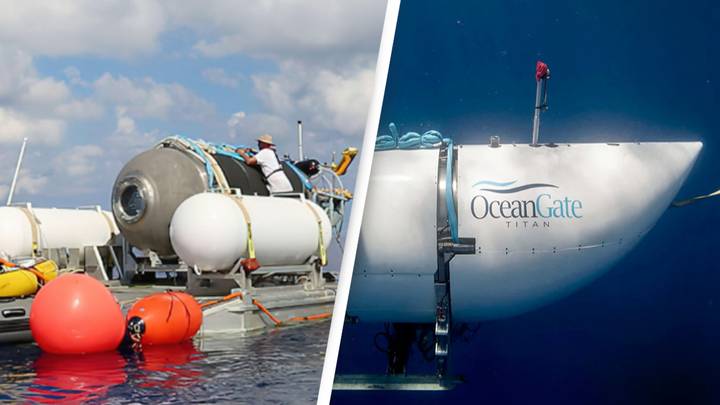
The sliver of hope for the five people aboard the Titan tourist submersible disappeared when the vessel lost contact Sunday. At the time, the crew had only about a day’s worth of oxygen left, and experts warned that if the submarine sprang a leak, it would likely implode under such an unforgiving ocean environment.
But a new development has slashed those hopes. US defense officials confirmed to the press that top secret underwater microphones detected sounds “consistent with an implosion” at the site where the sub disappeared. The information needed to be more definitive and immediately shared with the Coast Guard. Whether the acoustic data were collected before the submersible went missing or afterward needs to be clarified. Still, the Coast Guard has continued the search as a search and rescue to “make every effort to save the lives on board,” according to a senior Navy spokesman.
It’s too early to know, but the submersible imploded, and all five passengers are dead. Rear Admiral John Mauger of the Coast Guard’s First District told a press conference Thursday that debris found near the Titan wreck site is consistent with the “catastrophic implosion” of the vehicle. He could not say whether the implosion happened at the same time as the sub’s loss of communication on Sunday. Still, he did note that the debris wasn’t picked up by sonar buoys used by the search team and that it is not the “type of debris that an acoustic anomaly would have triggered.”
He added that no other evidence suggests the sub surfaced after losing contact with its mother ship. However, that could still be possible if the submersible reached the surface on its own and managed to signal its surface ship.
The Coast Guard will continue searching for clues about what happened to the Titan, owned by the privately held company OceanGate Expeditions. The unique carbon-fiber submersible was designed to take tourists to the Titanic wreck site for $250,000 per seat. The five people onboard were Hamish Harding, a British adventurer; Paul-Henri Nargeolet, a French Titanic expert; Shahzada Dawood, a Pakistani businessman and his 19-year-old son Suleman; and Stockton Rush, chief executive officer of OceanGate Expeditions.
Mauger said all the people on board were experienced divers, and he had no reason to believe they would attempt anything dangerous or illegal. He also praised the efforts of the international search team, which included ships and aircraft from Canada, Britain, France, and the United States. But he also said the Titan’s 96-hour supply of oxygen was expected to run out by Thursday and that the search team isn’t optimistic about finding the sub. The search for the Titan will continue until the end of the month, but it’s unclear whether any attempts will be made to recover the submersible or the bodies of the five people who died.